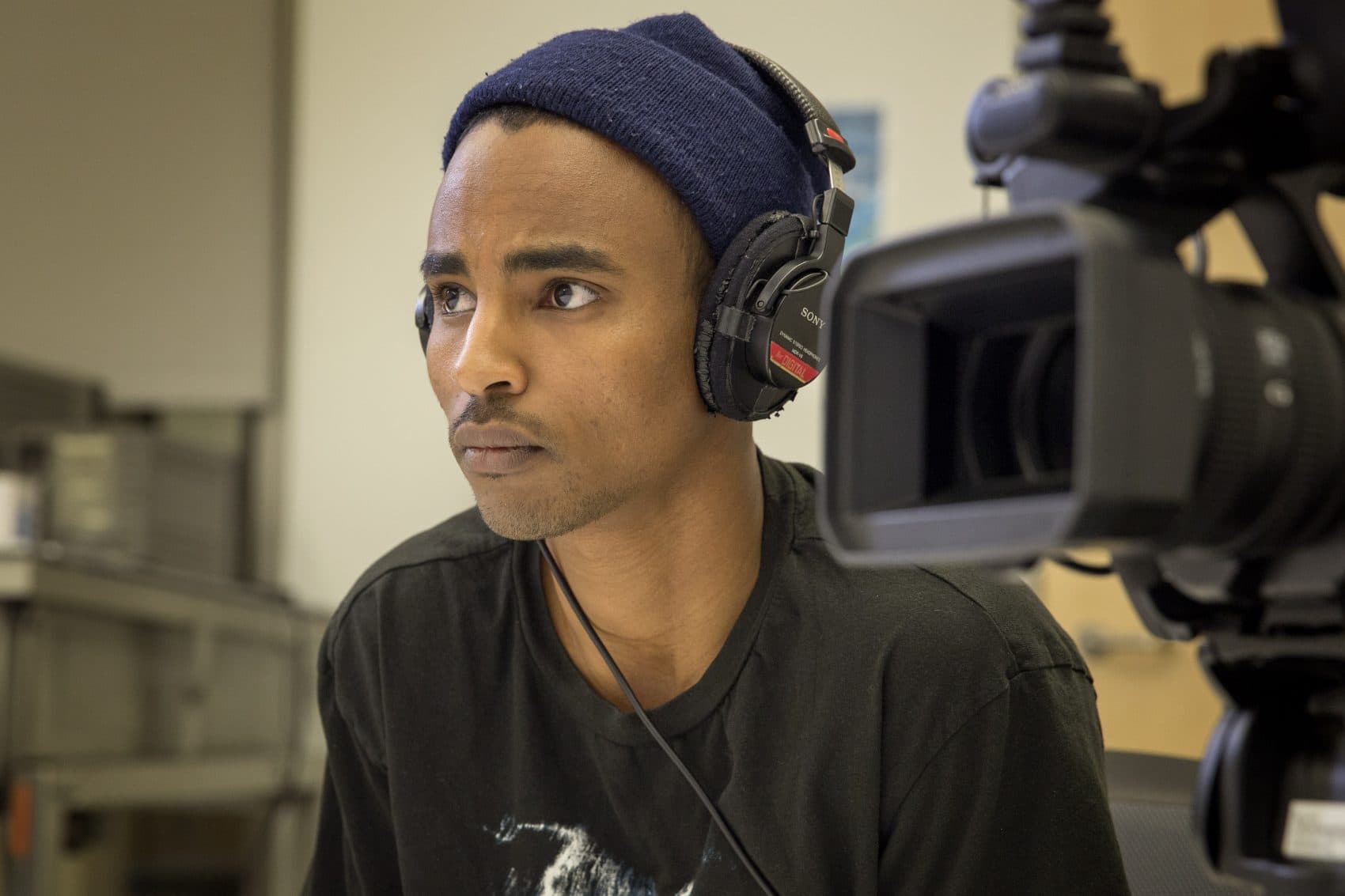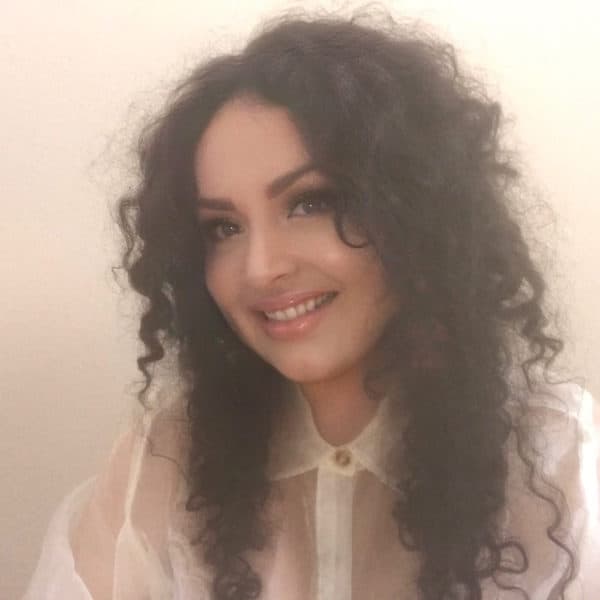Advertisement
To Bridge Language Barrier Between Immigrant Generations, This Somali-American Is Making A Film

In a church basement in Roxbury, a group of immigrants discuss the documentaries they're learning how to film. Guiding them are volunteers with the nonprofit Community Supported Film.
"It's incredible to be in a room with 10 people from 10 different cultures, 10 different countries, different religions, different perspectives — in terms of our outlook on the immigrant experience," says filmmaker Michael Sheridan, who leads the nonprofit.
For two decades, Sheridan has worked with global NGOs to produce films highlighting issues of poverty and economic development in places like Afghanistan, Haiti and Bangladesh. He says he's realized a message is often more powerful if people tell their own stories.
"I became really interested in this issue of the sourcing of stories and who determines what stories are told and who tells them," Sheridan says.
"I became really interested in this issue of the sourcing of stories and who determines what stories are told and who tells them."
Michael Sheridan
That's why Sheridan started Community Supported Film, which provides 10 immigrants with intensive documentary filmmaking training. The program provides a 150-hour course on producing documentaries, complete with story development and editorial guidance. The result of the program will be 10 short films that will be screened across the U.S. at community halls, nonprofits and potentially some movie theaters.
"In counterpoint to the national conversation about building walls, enacting a travel ban and repealing DACA legislation, the trainees are producing stories that focus on the integration challenges faced by immigrants and the contributions they make to our culture, economy and social fabric," says Sheridan.
The immigrants in this cohort include men and women from Cuba, Ethiopia, Uganda, China and the Dominican Republic. One of the trainees is 25-year-old Abdirahman Abdi, who emigrated from Somalia a decade ago.
"I didn't know the culture. I didn't know the language," he remembers. "So [I went to] high school [as a] freshman with my very Muslim traditional clothes and it was very like, you know, 'What is going on here?' A lot of people were looking at me sideways like 'What are you doing?' "
Advertisement
The film Abdi is making explores the chasm between Somali immigrants who hold on to their language and their children who assimilate. It's a phenomenon Abdi sees in himself and his two younger brothers, who are losing their native language little by little, and their mother, who speaks only Somali.
"How do you really take advice from your mother? How do you take advice from your father when you really cannot understand them?" Abdi asks.
At her home in Roxbury, Abdi's mother, Xaawa, uses food to keep Somali traditions alive. Abdi's younger brother Abdurashin says she's tried to do the same thing with the Somali language.
"When I'd come home, my mom would tell me, 'Speak Somali' because she didn't want me to forget my native tongue," he says.
"How do you really take advice from your mother? How do you take advice from your father when you really cannot understand them?"
Abdirahman Abdi
Abdi and Abdurashid speak Somali to Xaawa but their Somali is halting compared to their mother's, which is quick and fluid. Abdi says he and his brothers can't get beyond the basics of conversation with their mother. They speak a mashup of Somali and English to Xaawa, but sometimes stuff just gets lost.
Immigrants, as a group, are not monolithic — but there are connecting threads. I know from my own experience with my Spanish-speaking immigrant mother how difficult it is to communicate with the same nuance, with which I do in English.
"Somali parents and children cannot have a meaningful conversation because the language difference. They have a little dialogue, like, 'Hey mom, how are you doing?' but when it comes to sitting down and talking for more than an hour — that never happens," says Abdi.
Abdi may not be able to communicate with his mom with all the subtlety he can in English. But he's hoping that by making a film, he can communicate all of the nuance of their relationship.
This segment aired on November 21, 2017.
